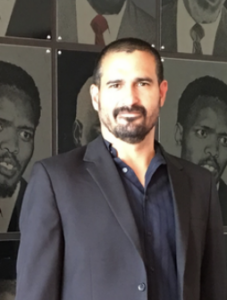Menu
Nelson Maldonado-Torres
University of Connecticut

Nelson Maldonado-Torres is Professor of Philosophy at the University of Connecticut, Professor Extraordinarious at the University of South Africa, and Honorary Professor at the University of KwaZulu-Natal in Durban, South Africa. A former President of the Caribbean Philosophical Association, he co-chairs the Frantz Fanon Foundation, and is a senior associate of the Soweto-based Blackhouse Kollective. He is the author of “Outline of Ten Theses on Coloniality and Decoloniality” (Frantz Fanon Foundation website), and the co-editor of the co-edited anthologies Decolonialidade e pensamento afrodiaspórico (2018), and Decolonial Feminism in Abya Yala: Caribbean, Meso, and South American Contributions and Challenges (2022). His recent work focuses on the elaboration of the concept of combative decoloniality in dialogue with Fanon’s writings and the work of various decolonial collectives.
Talk Information:
Beyond ‘Decoloniality Light’: Palestine, the War Against Decolonization, and Combative Decoloniality
May 24, 2024 | 9:00 AM
The attacks of the Islamic Resistance Movement (Hamas) on Israel immediately gave rise to two scandals: a scandal regarding what many perceived as a major failure of Israel’s intelligence, and a scandal about new trends in public opinion, which, instead of echoing the Netanyahu government’s insistence on Israel's right to self-defense and the intent to annihilate Hamas, called attention to a long and systematic oppression of Palestinians and to a pattern of disproportionate retaliation on Palestinians by the Israeli state. This second scandal led to calls for opposition to “academic decolonization,” which quickly emerged as the presumed culprit for the change in public opinion. The irony of the situation is that if we have learned something about “academic decolonization” in the context of the Palestinian struggle, is that, typically, academic decolonization rarely goes beyond pre- and non-combative forms of decolonization. Building on the work of Frantz Fanon and the contributions of contemporary decolonial organizations and movements such as the Frantz Fanon Foundation, the BlackHouse Kollective (South Africa), La Colectiva Feminista en Construcción (Puerto Rico), and Decolonize This Place (USA), this presentation makes the case for a combative conception of decoloniality.